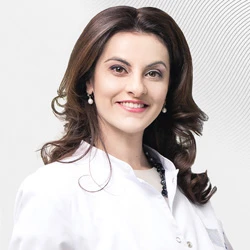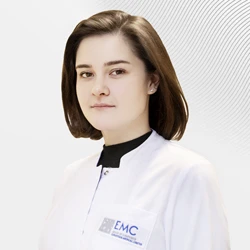Treatment of viral infections
Says a dermatovenerologist, a doctor of the highest category Artur Ivanov
The main route of infection by urogenital forms of the virus
The main risk factors for infection include: early onset of sexual activity, frequent change of sexual partners, ignoring the use of barrier contraception (condom), the presence of other sexually transmitted infections (chlamydia, gonorrhea, trichomoniasis, candidiasis, etc.), internal factors (vitamin deficiency, decreased immunity, including during pregnancy, stress).
The main clinical manifestations of human papillomavirus infection (HPV)the genitals are pointed
In the case of prolonged HPV activity in the thickness of the skin or mucous membranes, as well as in the presence of certain types of high-risk cancer viruses, precancerous and cancerous changes may form, the so-called dysplasia of varying severity or carcinomas. HPV most often provokes the development of cervical cancer, cancer of the neck of the bladder, rectum, penis, oropharyngeal cancer.
At the first stage, it is necessary to carry out an accurate diagnosis of papillomavirus infection (HPV), which should include the determination of the type of virus and the cancer risk group, cytological and histological examinations, colposcopy.
The second step is full-fledged HPV treatment.These are various methods of rash removal (cryodestruction, electro, laser, radio wave destruction, and in some cases surgical excision).
The third step is the timely prevention of HPV-related malignancies - vaccination.
According to the recommendations of the CDC (Center for Disease Control, USA), the use of the vaccine is recommended even in the absence of virus transmission.
The EMC Clinic of Dermatovenerology and Allergology-Immunology has successfully applied vaccine prophylaxis to prevent infection with high-risk human papillomavirus (6,11,16,18) using the Gardasil vaccine manufactured by Merck &Co., Germany.
In addition, EMC venereologists vaccinate patients who are already carriers of HPV.
Studies conducted by our foreign colleagues confirm the high effectiveness of vaccination, which promotes faster elimination of the virus from the body and significantly reduces the risk of recurrence of clinical manifestations of papillomavirus infection.
The second most common viral infection is the herpes simplex virus.
The causative agent is the herpes simplex virus (HSV). Moreover, it can be both HSV-2 (type 2) and HSV-1 (type 1), which affect the skin and mucous membranes of the lips, eyes, nose, etc. The main clinical manifestations of genital herpes infection are limited "vesicular" rashes. Moreover, the first contact with the herpes simplex virus can be manifested by the appearance of an abundant blistering rash, a violation of the general condition, an increase in body temperature, and an increase in lymph nodes. In cases of recurrent herpes infection, the rashes are characterized by grouped blisters on the background of extensive edema. The main symptoms that bother patients are burning or severe itching, which significantly reduce the quality of life.
Infection with the herpes simplex virus occurs from a sick person with clinical manifestations of infection activity.
To diagnose herpes infection, molecular genetic methods (PCR) and serological methods are used (determination of antibodies in the patient's blood to type 1 or 2 of the herpes simplex virus).
In the EMC, it is possible to quickly and fully examine patients with herpes infection, determine the titers of antibodies to a specific type of virus and antiviral immunity in each individual patient. This allows you to select the necessary treatment that will significantly reduce the number of relapses.
Treatment of frequently recurring genital herpes is a difficult task. According to European treatment protocols, the patient is recommended to take long-term antiviral drugs. The duration of therapy is selected individually and may take a long period of time.
The EMC practices an individual approach to each patient, which allows you to choose a full-fledged treatment and minimize the side effects of therapy.
In some cases, if there are contraindications to prolonged use of antiviral drugs, herpes vaccine therapy is used, which usually does not lead to the elimination of the herpes simplex virus, but it can significantly reduce the number of relapses of the disease, up to their complete disappearance.
Active genital herpes infection for a long time, especially in men, can lead to infertility and the formation of chronic pelvic pain syndrome.
Take good care of your health.
Why the EMC
The first and only clinic in Russia, created in the image of the world's leading clinics
EMC is a multidisciplinary center offering patients a high level of medical services and a personalized approach
Worldwide recognition and awards
 Learn more
Learn more
Worldwide recognition and awards
 Certificates and licenses
Certificates and licenses
Make an appointment for a consultation
Specify your contacts and we will contact you to clarify the details
Reviews
and new products of the EMC


.webp)
.webp)
.webp)







